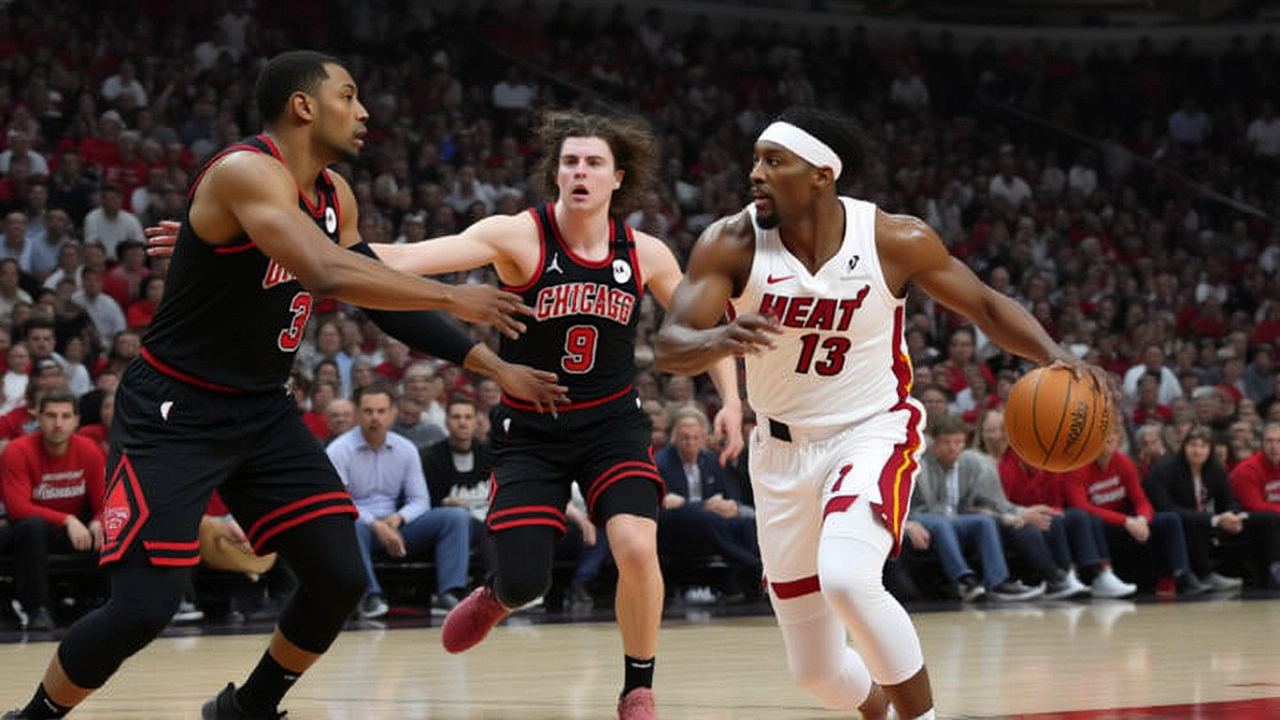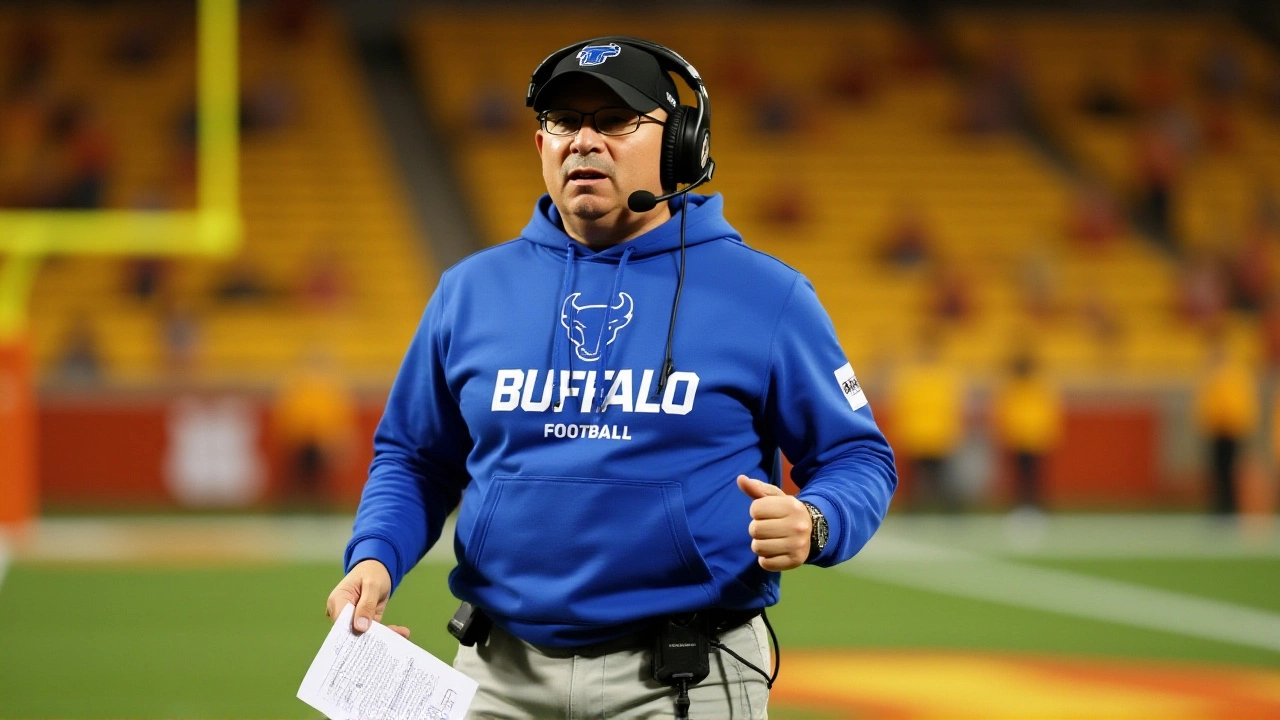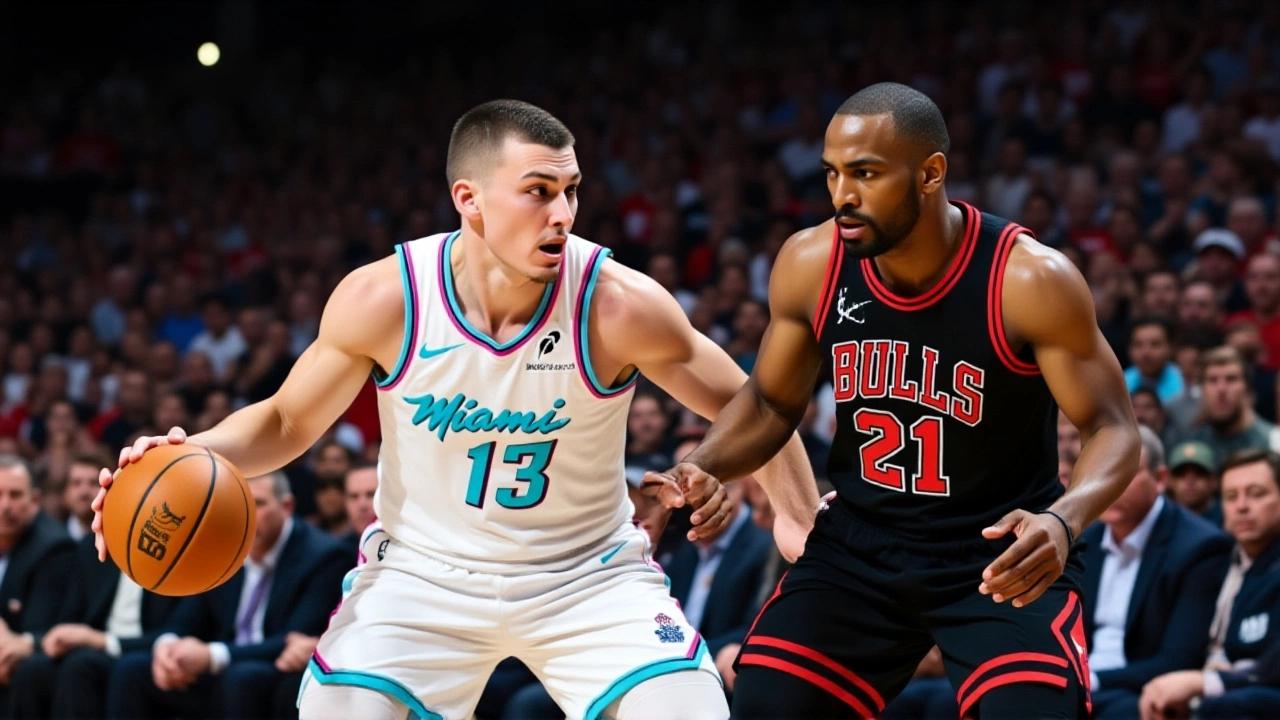The Miami Heat didn’t just beat the Chicago Bulls on Friday night — they erased them. On , at the United Center in Chicago, Miami rolled to a 143-107 victory in an Emirates NBA Cup Chicago group stage game that felt more like a demolition than a contest. The Heat’s 36-point win wasn’t just their largest of the season — it was the Bulls’ worst deficit of the year, a brutal 41-point blowout in the final minutes that left fans stunned and analysts scrambling for explanations.
From early spark to total collapse
Chicago opened strong, hitting their first five shots and racing out to an 18-11 lead in the first 5½ minutes. For a moment, it looked like the Bulls might finally find their rhythm after a shaky start to the season. But then, everything changed. Miami responded with a 53-21 run that lasted nearly 18 minutes — from late in the first quarter through the first half — turning a narrow deficit into a 25-point lead. The Bulls didn’t score a single point for over four minutes during that stretch. The defense? Nonexistent. The offense? Stagnant. The energy? Gone.
Kel’el Ware dominates the paint
At the heart of Miami’s onslaught was Kel’el Ware, the 20-year-old center whose presence in the paint was like a tidal wave. He finished with a game-high 20 points and 14 rebounds, adding two steals and three blocks. His mobility surprised even veteran defenders, and his finishing around the rim was almost effortless. When he wasn’t scoring, he was altering shots — and the Bulls knew it. They stopped trying to drive inside after the first quarter. That’s how dominant he was.
But Ware wasn’t alone. Norman Powell poured in 19 points off the bench, hitting key threes and attacking the basket with precision. Bam Adebayo added 18 points, including a rare three-pointer that sent the Heat bench into a frenzy. And then there was Davion Mitchell, whose left-handed drives were so explosive they looked like highlight reels in real time — he scored 16 points on just 10 shots.
Chicago’s struggles, and one explosive ejection
For the Bulls, it was a night of frustration. Ayo Dosunmu led the team with 23 points and four assists, but even he couldn’t carry the load. Josh Giddey nearly notched a triple-double with 19 points, 11 rebounds, and nine assists — a performance that meant nothing in the face of Miami’s avalanche.
The turning point emotionally came in the third quarter. Kevin Huerter, already visibly frustrated by Miami’s relentless pace, waved his hand at the ball after a foul call. The ball bounced off referee Che Flores’s leg. Huerter didn’t make contact — but the gesture was enough. He was ejected for unsportsmanlike conduct. The crowd groaned. The Heat smiled. And Miami went on a 12-2 run immediately after.

Historic scoring, and a league-leading pace
This wasn’t just a big win. It was historic. The Heat’s 143 points marked their fourth game this season scoring 140 or more — a number that matches their total across the entire previous seven seasons (2018–2025) combined. They’re now averaging 124.8 points per game, the highest in the NBA by over two full points. They’ve become the league’s most dangerous offensive machine — not because of one superstar, but because of balance, movement, and relentless pace.
Before this game, Miami had only hit 140 points twice in the entire 2024-25 season. Now, they’ve done it four times in just 16 games. That’s not luck. That’s a system. A system built on spacing, ball movement, and players who know their roles — from Ware’s rim protection to Powell’s catch-and-shoot precision.
Conference implications and the NBA Cup ripple effect
The win pushed Miami to 10-6 overall and 2-1 in the Emirates NBA Cup, placing them just half a game behind the Milwaukee Bucks in East Group C. Chicago, meanwhile, fell to 8-7 overall and 1-2 in Cup play, dropping into fourth place — behind the New York Knicks and ahead of Charlotte, but still out of playoff position in the Cup’s narrow path to the semifinals.
For the Heat, this wasn’t just about winning a group stage game. It was about sending a message: they’re not just contenders — they’re a force that can overwhelm anyone, anywhere. For the Bulls, it was a wake-up call. They’re still searching for consistency, and Friday night proved they’re not yet ready to compete with the league’s elite.

What’s next?
Miami travels to face the Boston Celtics on Sunday, a matchup that could define their Cup trajectory. Chicago returns home to host the Orlando Magic — a game they absolutely must win to avoid falling further behind in the standings. But after this performance, questions are mounting: Can Chicago fix their defense? Will they trade for a veteran scorer before the deadline? And most importantly — can they stop looking like a team in transition?
One thing’s clear: Miami’s offense isn’t just hot — it’s burning down the league.
Frequently Asked Questions
How does Kel’el Ware’s performance compare to other young centers in the NBA?
Kel’el Ware’s 20-point, 14-rebound game puts him in elite company among rookies and second-year players. Only three centers under 21 have posted similar stat lines this season — Victor Wembanyama, Chet Holmgren, and Paolo Banchero — and none matched his efficiency (10-of-14 FG). His rim protection and mobility make him a rare two-way threat, and his impact on Miami’s defense has been immediate, with the Heat allowing 8.3 fewer points per 100 possessions when he’s on the floor.
Why is Miami scoring so much more this season than in past years?
Miami’s offensive explosion stems from three factors: improved spacing with five shooters on the floor, a new motion offense system under coach Erik Spoelstra, and the emergence of role players like Powell and Larsson who thrive in transition. They’re averaging 34.2 assists per game — second in the NBA — and their ball movement has created open looks at a rate unseen since the 2019-20 Heat squad. This isn’t just about talent; it’s about system and chemistry.
What does this loss mean for the Bulls’ playoff chances?
Chicago’s 8-7 record still keeps them in the Eastern Conference playoff hunt, but their defensive rating (120.3) ranks 25th in the league. Losing by 36 points — their worst of the season — exposes their lack of depth and interior defense. Without a major upgrade before the trade deadline, their postseason hopes rely heavily on Dosunmu staying healthy and Giddey improving his decision-making under pressure. They’re one bad stretch away from falling out of the top eight.
How significant is the Emirates NBA Cup for teams like Miami and Chicago?
The Cup matters more than many realize. The top two teams in each group advance to the knockout rounds, and winning group games boosts seeding and morale. For Miami, this win keeps them in contention for a home game in the semifinals. For Chicago, falling to fourth means they need to win their final two group games and hope for other results to go their way. It’s not just exhibition — it’s a path to extra playoff preparation and national exposure.
What led to Kevin Huerter’s ejection, and was it justified?
Huerter’s ejection came after he waved his hand at the ball following a foul call that went against him. The ball hit referee Che Flores’ leg, which officials interpreted as a gesture of disrespect toward the officiating crew. While no contact occurred, NBA rules allow ejections for unsportsmanlike conduct — even without physical contact. The league later confirmed the call was correct under Rule 12, Section VII. Huerter’s frustration was understandable, but his reaction crossed the line.
How does Miami’s 143-point game compare to historic NBA scoring performances?
Only 12 teams in NBA history have scored 143+ points in a game this century. Miami’s 143 points tie them for the 11th-highest total this season, behind only the Suns (151) and Warriors (148). What’s remarkable is they did it without a single player scoring 25+ points — their balanced attack makes them harder to defend than teams relying on one star. This is the new standard for offensive efficiency in the modern NBA.
